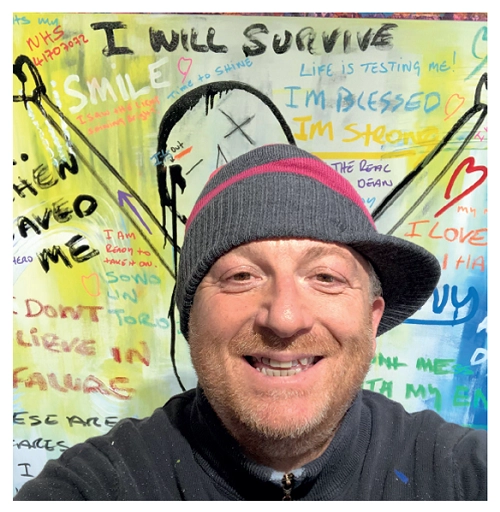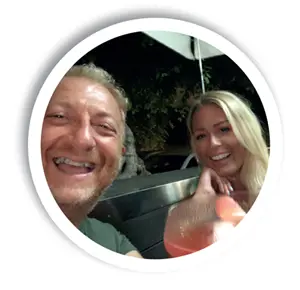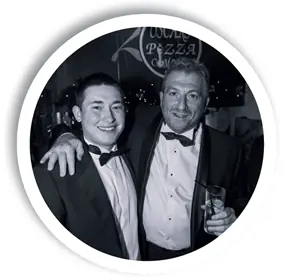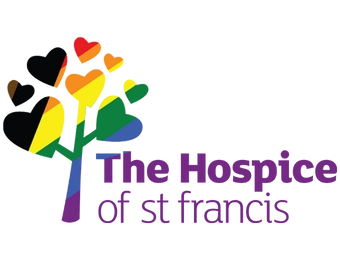
His own dad had died from the same type of aggressive brain tumour. But as a man with a huge appetite for life, Tony refused to accept that he only had eighteen months left.
Tony lived life to the full. Initially he pursued a career as an artist and music producer. Shortly after his son Oscar was born, Tony opened an Italian family restaurant in Kings Langley called Oscars Pizza Co – a place he filled with his big laugh for over twenty years. He was so vibrant. He would fill the room. When he walked into a room, you’d know about it, his partner Sally says.
Everybody loved him. After Tony’s diagnosis in January 2019, he sailed through his treatments and lived life ‘as normal’. Even during Covid lockdowns, Tony created a party atmosphere for his family, DJ’ing in his garden. His confidence that he would be okay reassured his family.
But in January 2021, Tony’s cancer came back. Tony’s family started caring for him at home, even as his needs became more physically and emotionally demanding.
We did a lot, Sally says. Looking back we probably went past the point we should have, before reaching out for help.

Sally distinctly remembers the day when Tony’s oncologist explained there would be no more treatment and that he would introduce them to their local Hospice.
"I didn’t know anything about Hospices. It was the first time I’d heard of The Hospice of St Francis.
"Tony was most comfortable at home – he called it his sanctuary. He loved his home. He loved his chair – a giant reclining leather chair. He’d had it for 15 years shaped over this time to fit his body perfectly. From the armchair, he could sit and enjoy his garden. Home really was where his heart was. Home was the place he always wanted to be."
So it was with huge relief for Tony’s family when they learnt that the Hospice would come to them. "By this point he couldn’t walk and was very ill so straight away the team from the Hospice started coming in first thing in the morning because he couldn’t get up to the bathroom. It sounds really simple but it was such a big thing to him." It allowed Tony to retain his dignity, it meant the man who was always so proud could maintain his self-respect, and it meant he could be cared for at home and did not have to go into hospital.
"The team took so much stress away from us. They would explain things to Tony - they came and explained what would happen and why. They helped him to understand his diagnosis.
"It was February 2022. I thought I just can’t do this anymore. Once again the Hospice listened to what we wanted and arranged funding for full-time carers, who came in every day to help with everything. They were incredible. Sally remembers to this day when Helena, one of the Hospice nurses told her: You don’t need to do this. You can have help. You can just enjoy your time with him.
"They were like the safety net. They were more than just nice to us – they knew our situation. They understood our circumstances, they had got to know us in a way I never thought possible. If I was ringing about something they knew it was probably quite urgent and would get back to us really quickly.

"They’d always come out to help, even if it was just to talk to Tony."Helena also gently prepared the family for what to do after Tony died. "In the last 5 days Helena might as well have stayed at the house. She came over so often. We couldn’t have done it without her."
Three and a half years after Tony was given just eighteen months to live, he died peacefully at home – where he always wanted to be – with his loved ones at his bedside. He’d had visits from family and friends who’d said goodbye. Sally remembers: "It was so nice that we got that last evening together. He slept and we played music and sang along to his favourite hip hop songs."
Tony’s son Oscar reflects: "It meant everything to Dad and to all of us that he could stay at home right through his illness. After he died the Hospice were still there for us. We were offered help afterwards – all of us – which just showed how much the Hospice cares. Even now I’m like did we really do all of those things? But we could never have done it without Helena and the Hospice team."






Share Article